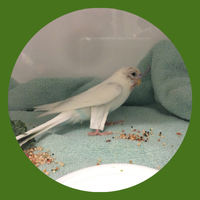Avian & Exotics Service
Specialist veterinary care for Exotics
Based in Northern Beaches, Sydney
Services
Your content goes here. Edit or remove this text inline or in the module Content settings. You can also style every aspect of this content in the module Design settings and even apply custom CSS to this text in the module Advanced settings.

Consultations & Health Checks
Consultations including health checks, behaviour and nutrition advice, vaccinations, microchipping, evaluation of sick exotic pets

Diagnostic testing
Comprehensive range of diagnostic tests including laboratory tests (blood tests, cytology, biopsy), radiographs (x-rays), CT scan, ultrasound and minimally-invasive endoscopic procedures

Medical Care
Management of dermatologic (skin), endocrine (hormonal), reproductive, cardiac, respiratory, gastrointestinal and liver, kidney and urinary tract, neurologic, neoplastic (tumour, cancer), infectious diseases and more

Infectious Diseases
Testing and management of viral, bacterial, fungal and parasitic diseases.

Sedation, anaesthesia & analgesia
Using specialised exotics anaesthetic equipment and the latest guidelines for exotics anaesthesia and pain relief.

Dentistry
Corrective burring of overgrown teeth and spurs, tooth extractions, treatment of dental-associated abscesses, apicoectomies, dental cleaning.

Surgery
Range of surgical procedures, including desexing, with magnification and radiosurgery capabilities.

Hospitalisation
24-hour hospital care in a dedicated exotics ward with intensive care incubators.

Emergency & Critical Care
Management of emergency and critical cases, including fluid therapy, oxygen therapy, air sac catheters, thoracostomy tubes, blood transfusions, centesis and more.
Protect Your Exotic Pet’s Health Today!
Transporting your exotic pet to the Vet
sure exotic pets stays safe during transport, they should be transported in secure carriers/enclosures.
Birds
- Small birds (budgies, canaries) can be transported in their regular cage if it is small enough for transport.
- Birds living in larger cages or aviaries can be transported in smaller bird cages or small pet plastic carriers.
Mammals
- Rabbits, guinea pigs and ferrets can be transported in small pet or cat plastic carriers.
- Smaller rodents (rats/mice) can be transported in their regular cage if it is small enough for transport or small pet plastic carriers.
Reptiles
Snakes and lizards can be transported in a pillowcase or a secure plastic container/carrier with ventilation holes.
- Turtles can be brought in a secure ventilated moistened plastic container (moistened towels on the bottom). Do not transport turtles submerged in water.
Amphibians (frogs, axolotls)
- Frogs can be brought in a secure ventilated moistened plastic container (moistened paper towels on the bottom). Do not transport frogs submerged in water.
- Axolotls are completely aquatic and must be transported submerged in water. Transport in their own tank water, in a secure container (eg. plastic container, glass container, esky). Axolotls do not tolerate warm water, so prevent overheating during transport.
Fish
- Transport in their own tank water, in a secure container (eg. plastic container, glass container, esky). To improve oxygenation during transport, secure the top with a mesh (instead of a solid lid) or use an air stone.
Aquatic animals (aquatic reptiles (eg turtles), amphibians, fish)
- Please bring extra tank water for testing or if sedation of your aquatic pet is required
- For reptiles/frogs: at least 100mL
- For fish and axolotls: at least as much as the amount of tank water that the pet is coming in




